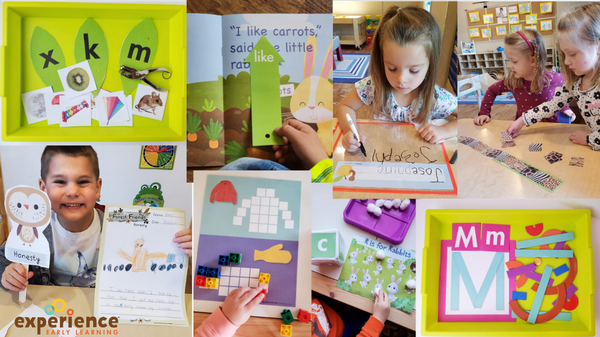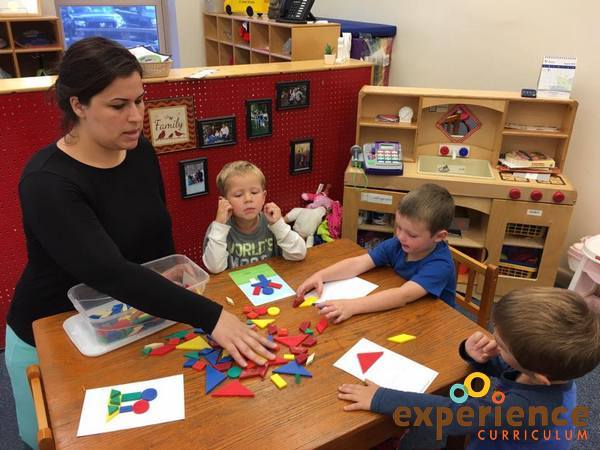Benefits of Small Group Activities
Why say “yes” to small group instruction in preschool? Children benefit from small group instruction more than whole group instruction because the educator can connect with each child, and the curriculum can be individualized as needed so children can build skills.
When you implement small group activities into the daily schedule your children will learn more. Support learning and assess development during small group activities, meeting each child’s needs. READ: 3-Step Approach to Small Groups
Managing Small Groups
Sometimes teachers avoid working in small groups because they are afraid of losing control of everyone else. Here are some ways to manage small group times. First, set a routine and be consistent about free play/center time, and hosting small groups.
Be clear, consistent and specific with your classroom expectations. Perhaps at large group time, explain that next is center time and which group you will be working with today.
Create a firm but loving classroom environment so children understand expectations.
Mix in free play with small group work. Work with one group while the others play. Then alternate.
Have realistic expectations. There will be behavior issues, interruptions, some messes made and you may have to redirect children during small group time.
Be patient and give it time for everyone, including you, to practice!
Tips for Small Group in Preschool
Use these tips for implementing small groups in preschool:
- Small groups = 3 – 4 Children
- Host during free play/center time
- Create multiple group activities
- You don’t have to work with each child each day or every group each day
- Choose fun hands-on activities like games from the Experience Preschool curriculum
- Be prepared
- Choose a strategic location for small groups
- Start with 10 minutes or less for small group sessions

